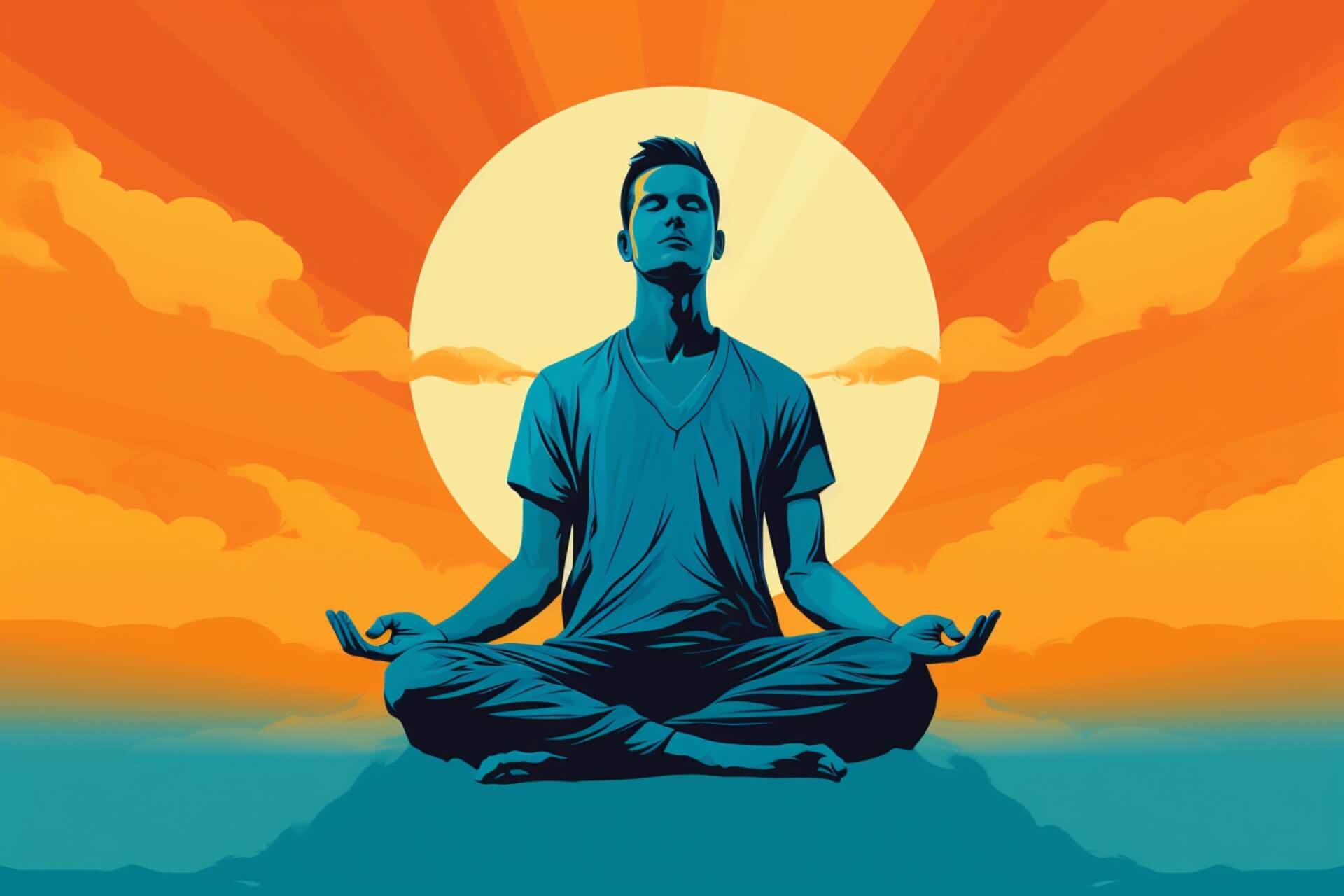
As an Amazon Associate, Modded gets commissions for purchases made through links in this post.
Experts have long touted the benefits of mindfulness as a component of mental health treatment and management. However, beginners may not always know how to cultivate a practice or focus their attention inward. Fortunately, for those individuals, they can do a guided meditation for anxiety and depression that can help.
Anxiety and Depression Prevalent Among Men
If you’ve struggled with bouts of depression or anxiety, you’re not alone. Mental health cases among men have been on an alarmingly upward trend for several years. You may not notice, though. Only 1 in 16 men compared to 1 in 8 women admit to feeling depressed — this discrepancy is likely related to gender norms and the notion that mental duress is a sign of weakness.
Boys are often taught to suppress their emotions and express themselves differently than girls. As a result, they become men who manage their depression through substance abuse, aggressive tendencies and overworking themselves. Sadly, men are three to four times more likely to die by suicide than women.
Why not seek therapy or medication to work through your troubles with a professional? Some would argue it’s not so easy, which is why women are 1.6 times more apt to seek psychological and psychiatric services.

Meditation for Mental Health
Meditation is one of the oldest Eastern mindfulness practices, dating back thousands of years. Today, 14.2% of adults participate in some form of meditation, whether it’s mantra-based, spiritual or mindfulness. Even 5.4% of children between four and 17 years old meditate.
Studies have underscored numerous benefits of meditation for mental health. Recently, researchers split 276 adults with untreated anxiety into two groups — one received a starting dose of Lexapro. The second group was told to attend a weekly 2.5-hour mindfulness class and practice 45 minutes of daily meditation at home for eight weeks. The mindfulness group also participated in a 24-hour retreat in the fifth week.
The results shocked the researchers as both groups showed a 20% reduction in anxiety symptoms — indicating that meditation could be a viable alternative to anxiety medication.
A different study found that mindfulness practice aids sleep disturbances. About 10% to 25% of the global population struggles with insomnia and sleep deficiency — that number is even higher among individuals with anxiety and depression. Although sleep aids are often prescribed as treatment, certain medicines can potentially exacerbate mood changes, headaches, memory loss and overuse.
Meditation calms the mind and eases racing thoughts to combat restlessness. While each person requires individualized care for their mental health conditions and traumas, meditation could be an additional component of better sleep management.

5 Types of Guided Meditation for Anxiety and Depression
A guided meditation for anxiety and depression will walk you through mindfulness techniques to relax your mind and body. Guided meditation is teacher-led, meaning someone will call out each step of your practice — this is particularly helpful for those who’ve never meditated before or struggle to quiet their thoughts by themselves. Here are five guided meditations you might encounter for anxiety and depression.
1. Visualization
Guided visualization meditations distract you from negativity and deliver positive images that create tranquility. A teacher can lead you through guided imagery, or you can search for numerous guided visualizations online.
You might envision yourself in a particular landscape that brings you joy or allow the practice to alter your memories, as in changing how your negative memories end — also referred to as rescripting.
Other visualizations might have you assign animals or symbols to your moods or ask you to visualize your goals and a path toward achieving them.
2. Yoga
Believe it or not, yoga is a form of meditation often led by a yoga instructor. In yoga, you’ll do various poses while focusing on the breath. One study found that chanting in Kundalini yoga showed a 40.4% improvement in patients with obsessive-compulsive disorder (OCD).
Combining yoga with cognitive behavioral therapy (CBT) can reduce anxiety and depression while aiding sleep.
Because of yoga’s physical nature, you should speak to your doctor beforehand. Traditional meditation is often in a seated position, whereas yoga injuries are always a possibility.
3. Breath Awareness
Breathwork meditations can have powerful effects on mental health. When you’re aware of your breathing, you can focus your mind more easily.
A guided breath awareness meditation may entail someone leading you through paced inhalation and exhalation. Box breathing is a helpful technique to elongate each breath.
You might lie down, sit or stand to participate in breathing exercises for relaxation — you can also do this with your eyes closed or open. Even 15 to 20 minutes of breathwork daily can significantly affect your mental health.

4. Body Scan
Another person can guide you through a body scan, drawing awareness to different body parts from your toes to your head and in reverse. Many practitioners find body scans most effective while lying on their backs, although you can also do a body scan while sitting.
You’ll be better aware of feelings and physical sensations during a body scan. You’ll also find your body has a lesser reaction to stress.
Your body may hold onto stress in the muscle memory — you may not even know how tight your muscles are. The tension may eventually lead to aches and pains. Guided body scans can effectively relieve built-up stress, easing chronic pain symptoms.
5. Chakra Meditation
A guided chakra meditation draws from several techniques, including body scans and visualization. Chakra meditation focuses on healing your body’s energy centers, from your pelvic region to the top of the head.
In Eastern traditions, meditation practitioners claim that stress leads to blockages within the energy centers — chakra meditation clears them.
Sahaja Yoga is one form of chakra healing. Founded by Shri Mataji Nirmala Devi, Sahaja is awareness-based, allowing you to create balance and achieve stress relief.
Guided Meditation Is the Best Way to Self-Aid Your Anxiety and Depression
Mindfulness techniques do not replace mental health treatment. Instead, they should work in tandem with therapeutic management.
It is always best to seek professional care from a therapist if you are dealing with anxiety and depression. However, you can maintain control over your mental health by fostering a meditation practice. Guided meditations allow you to receive assistance from another person while starting your meditation journey.
Stay up to date with the latest by subscribing to Modded Minute.
Author
Jack Shaw is a senior writer at Modded. Jack is an avid enthusiast for keeping up with personal health and enjoying nature. He has over five years of experience writing in the men's lifestyle niche, and has written extensively on topics of fitness, exploring the outdoors and men's interests. His writings have been featured in SportsEd TV, Love Inc., and Offroad Xtreme among many more publications.





